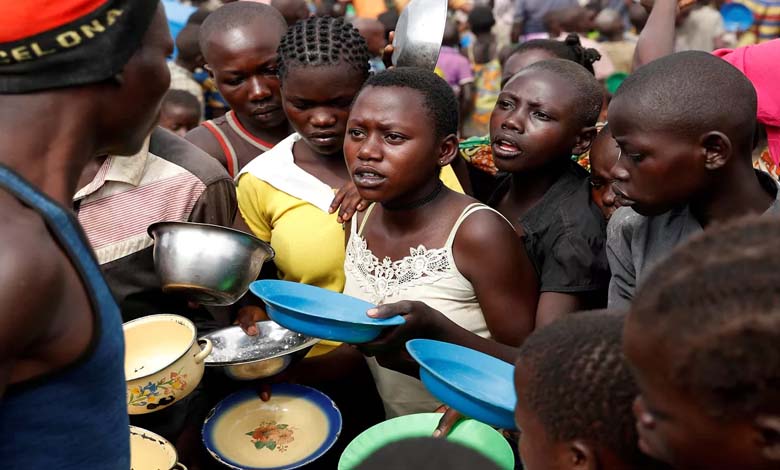Ongoing Suffering: More than 25 million Sudanese Face the Specter of Famine

Sudan is suffering due to the ongoing war that has been raging since April 2023 between the Sudanese army and the Rapid Support Forces, while the city of El Fasher, the capital of North Darfur State, has been under siege for months, signaling a humanitarian disaster.
-
Experts identify reasons for the collapse of the Sudanese Army
-
The Sudanese army targets schools and kills innocents in North Darfur
According to American network “ABC News,” El Fasher was once a city for refugees and a home for displaced persons fleeing the war, but it quickly turned into a city of misery and destruction.
According to the United Nations, about 800,000 civilians are trapped amid the gunfire in El Fasher. Residents have told ABC News that life has become bitter, the dreams of its citizens have vanished, and they have turned into refugees, with their lives now consisting only of trying to survive.
-
“Fanning the Conflict in Darfur: The Role of the Sudanese Army and Its Complicity with Moussa Hilal”
-
UN Urges Immediate Deployment of Peacekeeping Force in Sudan
The report highlights that El Fasher, which was once a key humanitarian center and a safe haven for hundreds of thousands fleeing other parts of Sudan, is now on the verge of collapse, with hospitals, markets, and schools being targeted, according to international observers.
Displaced Millions
The United Nations has documented an increase in civilian casualties due to shelling and airstrikes by the warring parties, as well as summary executions, sexual violence, and kidnappings. Additionally, many people remain trapped in the city, unable to afford the exorbitant costs to leave or to navigate through dangerous routes to escape as fighting continues.
-
Strengthening Humanitarian Access and Respect for Law: International Pressures to Resolve Sudan’s Crisis
-
Muslim Brotherhood, With the Help of the Sudanese Army, Ignites War
The conflict in Sudan has led to one of the “worst humanitarian crises” in modern history, forcing at least a quarter of the Sudanese population to flee their homes. As the war enters its eighteenth month, at least 20,000 people have been killed, according to the United Nations, but local groups assert that the actual death toll is much higher.
Catastrophic Conditions
Sudanese political analyst Mohamed Elyas stated that the situation in Sudan has become catastrophic, with the specter of famine looming in many besieged areas due to the ongoing battles between the Sudanese army and the Rapid Support Forces.
-
More than “1000” children recruited by the Sudanese army have been killed in battles in Khartoum
-
Sudanese Analyst Reveals: Pressure Must Be Applied to Ensure the Flow of Humanitarian Aid
Elyas added that the country is suffering from the consequences of the war across many states, and global organizations have warned of the repercussions of these conditions on food production.
He further noted that due to the spread of epidemics and displacement, over 15 million Sudanese, whether displaced or migrants, have been affected. Regions such as Darfur, Kordofan, the Island, and Khartoum are experiencing severe food shortages due to the lack of supplies from various areas. Food prices have risen sharply, making it impossible for citizens to buy their basic necessities.
-
An aerial attack by the Sudanese army targeted the Nassim Hospital in the Tadamun Darman area using drones
-
After 500 Days of War… A Major Health and Food Crisis Facing Sudan
Elyas pointed out that the absence of factories and production facilities has exacerbated the situation, with many citizens depleting their savings. The failure of the agricultural season and the inability of states to manage agricultural production are attributed to the current situation, indicating a significant food shortage.
He explained that the war has significantly affected the unfolding of events, and if these conditions persist, the specter of famine will become a reality. The healthcare system is also suffering from severe deterioration, with several vital facilities and hospitals destroyed, leading to many ceasing operations. These conditions have resulted in acute malnutrition and an inability to treat children in many areas, further worsening the humanitarian disaster in the country.












